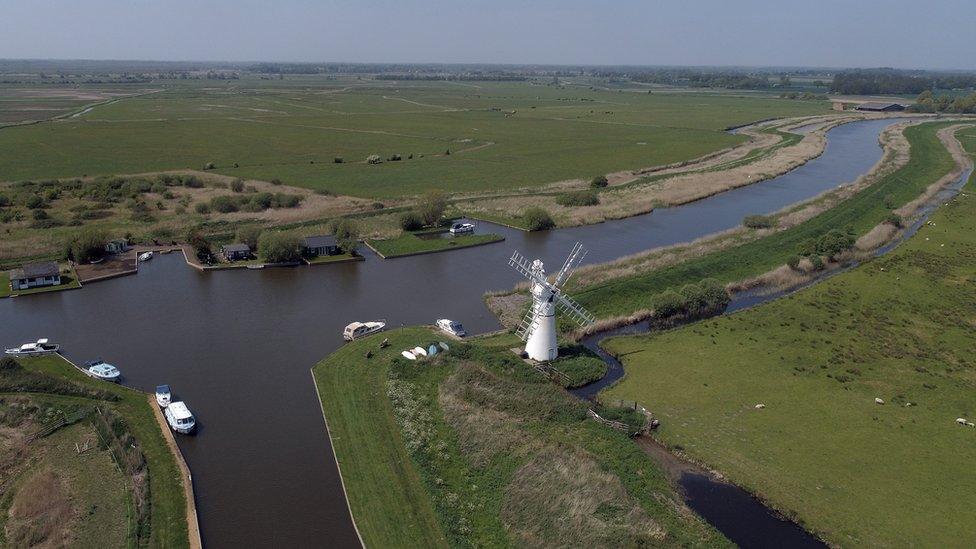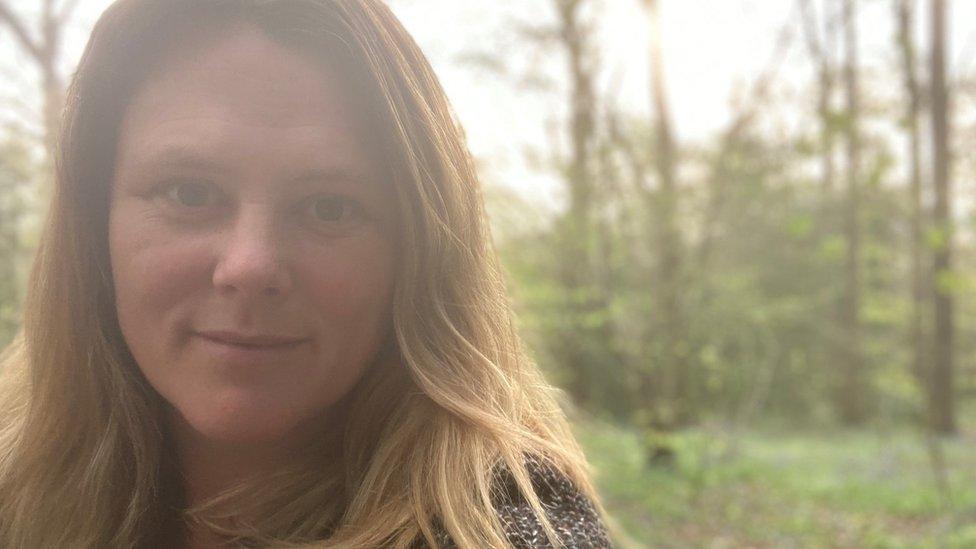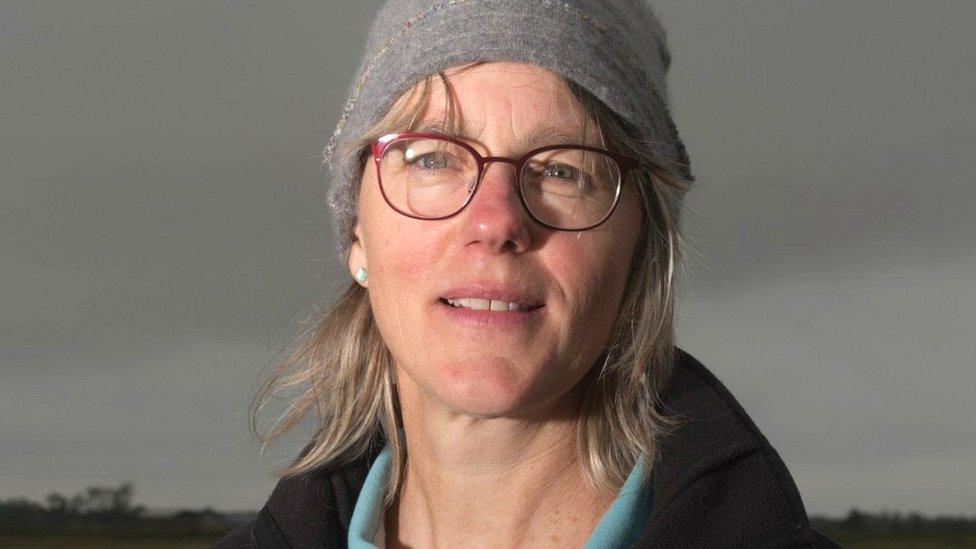The Broads: Campaigners call for more access to nature spot
- Published

The Broads are a network of more than 125 miles (201km) of lock-free rivers and lakes
Campaigners have called for a change to legislation to enable more public access to the Broads.
The Campaign for National Parks said only 0.5% of the land area of the Broads was accessible to the public.
Chief executive Dr Rose O'Neill said greater access was "urgently required", as the pandemic proved how important parks were for people's wellbeing.
The Broads Authority said due to the landscape's "unique composition", many areas were not "traversable by foot".
The Broads are a network of more than 125 miles (201km) of lock-free rivers and lakes stretching across the counties of Norfolk and Suffolk.
Dr O'Neill said the Broads were a "special and unique landscape within the National Park family".
"We want to see a review of existing legislation so that more lowland and waterway areas, such as the Broads, are included in the definition of 'open access land'," she said.
"By securing these reforms, we can remove the barriers facing visitors to the Norfolk Broads and ensure the public get to enjoy more of these beautiful places for generations to come."

Dr Rose O'Neill said parks were important for "people's physical health and mental wellbeing"
The Countryside and Rights of Way Act 2000 (CROW Act) normally gives a public right of access to land mapped as 'open country'. The types of land included are mountains, moors, heaths and downs, or registered common land, and these areas are known as 'open access land'.
A spokeswoman for the Broads Authority defended the organisation's efforts to open the area up, the Local Democracy Reporting Service said.
"The Broads offers over 200km of navigable waterways to explore by boat or paddle, spanning seven rivers and over 60 broads, as well as over 300km of public footpaths," she said.
"Due to the unique composition of the landscape, many areas are not traversable by foot or vehicle.
"The Broads is a wetland, often comprising of inaccessible reedbeds, marshland, wet fen or nature reserve.
"Some of this land is designated under legislation to protect the rich biodiversity of the area, or is privately-owned working arable farmland.
"We encourage people interested in access in the Broads to learn more about our Local Access Forum, where they have their say on improvements to access in the Broads area."
The Department for Environment, Food and Rural Affairs has been contacted for comment.

Find BBC News: East of England on Facebook, external, Instagram, external and Twitter, external. If you have a story suggestion email eastofenglandnews@bbc.co.uk, external
- Published28 October 2021
